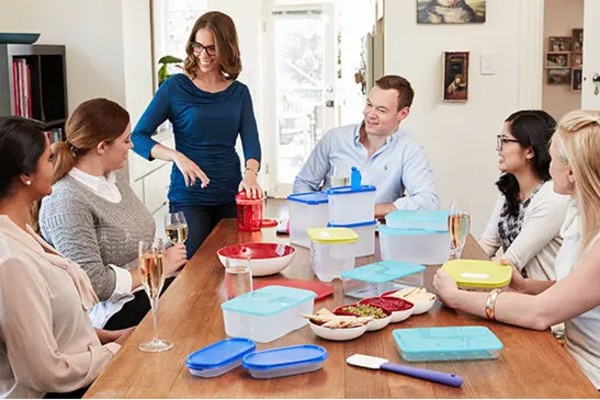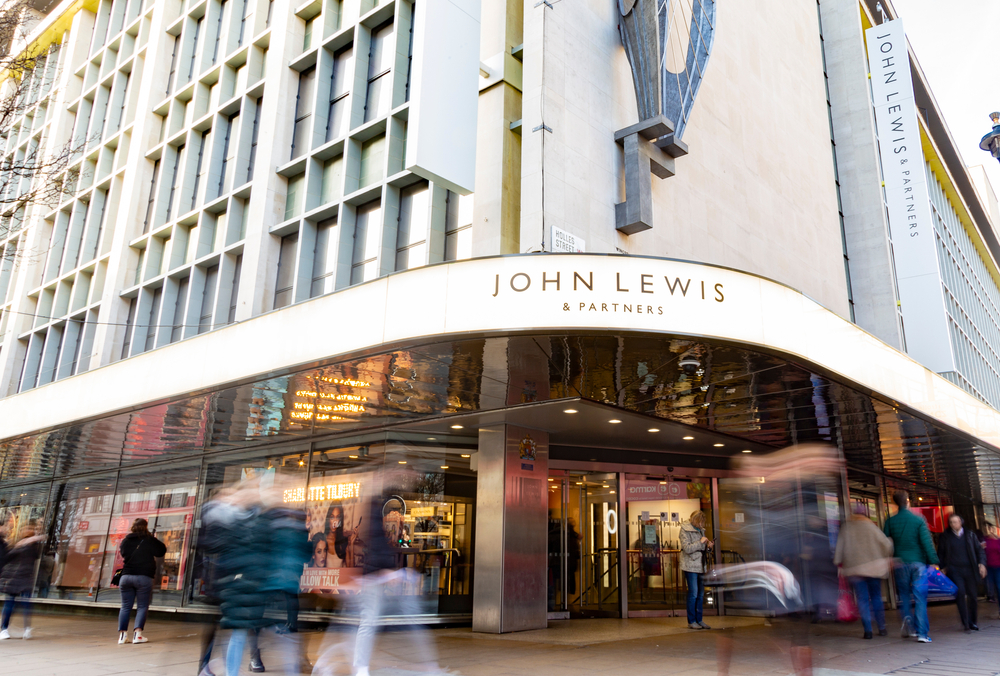Tupperware-style social shopping has been making a comeback in recent years. But with consumers forced to stay home in recent weeks amid the coronavirus pandemic, more shoppers are turning to online to make purchases.
This could potentially lead to the social shopping sector within retail to see even more of an increase in sales, especially with the rise of group video call apps such as Zoom.
“In a time of uncertainty and consumer panic, direct selling platforms are likely to see huge benefit,” Birmingham City University fashion business lecturer Sophie Johnson told Retail Gazette.
“With lack of stock availability due to stock piling and panic buying, consumers are taking to social media to create support groups or even use platforms such as Facebook Marketplace to offer their own unneeded products.”
Last year, internet users worldwide spent an average of 144 minutes per day on social media – up from 142 minutes in 2018. As online shopping continues to surge in popularity – with marketplace platforms such as Amazon and eBay becoming staples in society and fast fashion ecommerce sites popular among younger consumers – there has been a resurgence of direct-to-consumer (DTC) social selling.
“The reason for its increasing popularity can be attributed to factors such as an increasing demand from consumers for more personal and tailored retail experiences,” Direct Selling Association (DSA) director general Susannah Schofield told Retail Gazette.
“The rising prevalence of micro and nano influencers in retail, and growing appetites for more flexible earning and side hustles.
“All of these quite disparate elements combine to produce growth in the channel.”

As shopping habits continue to shift, it is up to retailers to find ways to constantly adapt and evolve their selling strategies to remain relevant with consumers.
Johnson said: “Currently millennials are the largest generation group and are the movers and shakers in terms of traditional consumer habits.
“The complexity of consumer lifestyles and shopping habits has put great pressure on retailers to be more flexible in how their consumers can shop.
“Brands are adopting their social shopping platforms to suit the lifestyle choices of consumers.”
“Social appeals because it’s convenient”
Richard Emmott, retail VP at global digital solutions firm Ciklum, added that because social shopping has grown in popularity, it has seen major investment.
“Both businesses selling through social and businesses providing slick tools to do it have upped their game,” he said.
So are new social shopping business models to thank for the sector’s resurgence? Schofield believes there are several different areas of growth.
“The first is that some of the DSA’s longest-established members – such as The Body Shop at Home – are seeing significant success from their DTC divisions,” she explained.
“The Body Shop’s social shopping division was recently credited as the group’s main driver of growth.
“Natura’s acquisition of global beauty brand Avon at the start of this year was a major moment for the channel; and a very clear demonstration of the growth potential and confidence in the social selling/DTC model.”
Schofield said that newer entrants to the sector were also contributing to growth, as well as a number of new DTC brands such as the premium hair and skincare brand Monat. She added that the DSA has also been approached by established FMCG brands interested in exploring DTC selling as a new part of their multichannel mix.
During a time where consumers are staying home and many brands not being able to physically meet their clientele, social media and technological advancements could see them using apps such as Zoom or Houseparty to sell.
“Social media has been a game-changer for social shopping”
“It breaks down the barrier of ‘social’ having previously limited salespeople to operating locally, and instead makes direct selling far more about relevance and shared interest, regardless of location,” Schofield said.
“So whereas before social media, a typical social shopping customer base might have predominantly been a seller’s neighbours and friends, now relationships with far more geographically-dispersed customers can be built on specific interests and requirements, making the experience far more relevant and tailored to the customer.”
DTC social selling also appeals to millennials and entrepreneurs due to the nature of the work.
“The increasing appetite for flexible working, side hustles, and gig earning all mean that social selling is growing in popularity as a form of independent earning,” Schofield said.
“Direct selling is typically undertaken on a part time basis to fit around other commitments in order to supplement household incomes, and with start-up costs often around just £20, it’s a far lower-risk way to try out something entrepreneurial than, for example, a franchise.”
As lockdown measures begin to ease, consumers are still avoiding crowds and shopping centres, leaving the question will social shopping businesses see an increase of use?
“Obviously, these are worrying, and unprecedented times, but the social shopping model is well-equipped to survive through this sort of crisis,” Schofield explained.
“This is partly because the sales base is spread throughout the UK across a network of many thousands of individual salespeople.
“The whole DTC model is far more resilient to this type of economic shock than traditional retail.”
Schofield added that many retailers have experienced extraordinarily challenging times over recent years but have in some cases been slow to evolve and change.
“Brands such as Nike Direct show the success that can be achieved through the adoption of quite radically different approaches and channels, but others have been slow to do the same,” she added.
“Now, and I would argue like never before, retailers must look beyond the norm to survive and thrive, and I firmly believe that DTC and direct selling is a channel that offers huge potential.”
Click here to sign up to Retail Gazette‘s free daily email newsletter


















